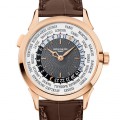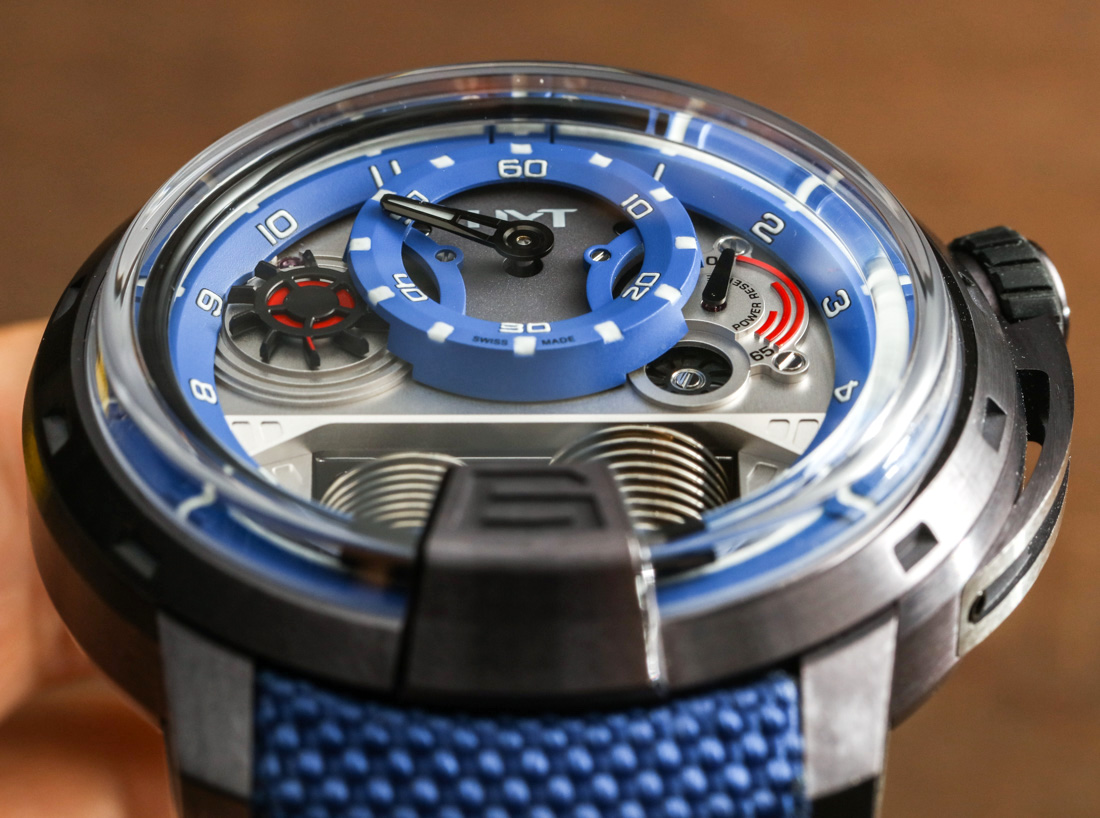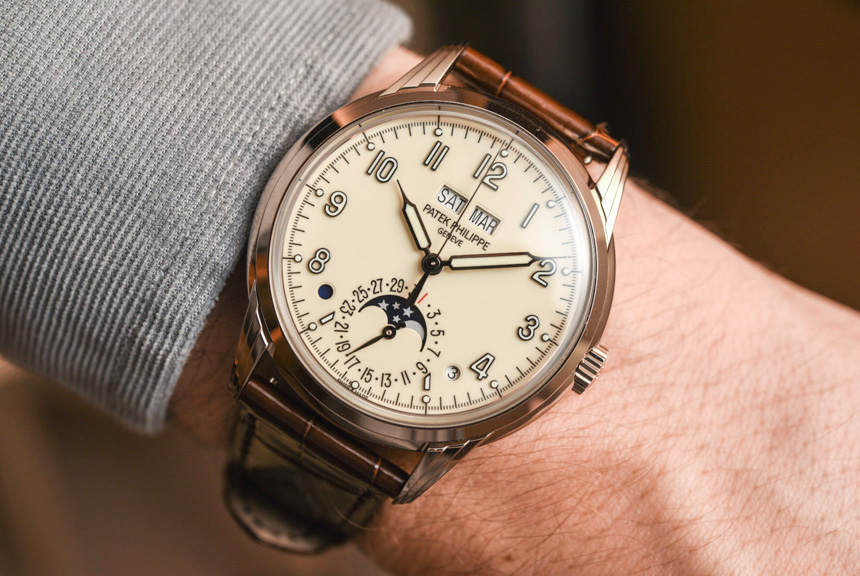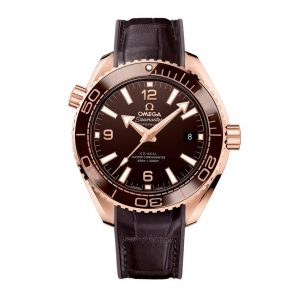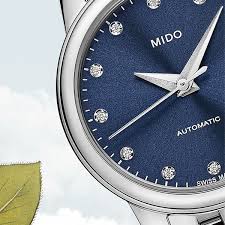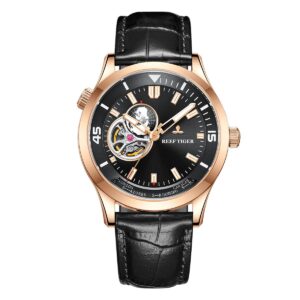
Like most wristwatches, the calendar watch is a descendant of the sundial, which various ancient cultures carefully calibrated to a specific spot on the earth so the sun’s shadow would fall in exactly the right position over the face.
A watch which would tell the date, month, and year has only recently made its way from oversize pocket types to something more wearable.
“A calendar watch is not only a mechanical computer,” says John Reardon, international head of watches for Christie’s, “but also an artistic representation of the passing of time.
“Layers of mechanical artistry must work in perfect harmony to present a seemingly simple result: what day it is.”

The Patek Philippe 5940G, above, is a perpetual calendar watch.
It automatically accounts for the shorter months, and even adjusts for the notorious challenge of February – that this month adds a day once every four years has bedevilled watchmakers for generations.
The timepiece is also one of the slimmest self-winding ones on the market, and the latest in the brand’s collection since it kick-started the trend in 1925, says David Bonilla, technical manager of Patek Philippe in New York.
And as long as you keep it wound, you won’t need to adjust it until March 1, 2100, the next time our calendar skips a leap year. It might even be your great-grandson who will do it.
Patek Philippe 5940G, $US87,300 ($123,575); patek.com
Perpetual questions
Claudio Cavaliere, global brand ambassador for Audemars Piguet, speaks about his everyday favourite, the Audemars Piguet 5516.
Why do you wear a perpetual calendar watch as your daily timepiece?
It’s a synthesis of time, space, and engineering and therefore speaks naturally to a large majority of watch lovers.
As a designer, what is the biggest challenge in making one?
We need to add more than 160 components in about 1.8 millimetres of space. Some of those are as thin as a single hair, and they all need to be adjusted perfectly.
In addition, the movement is extra-thin, which adds complexity because the space to make adjustments is very limited.
What’s your favourite historic calendar watch?
In 1955, Audemars Piguet introduced the first perpetual calendar wristwatch with the indication of the leap year. Only nine examples were made between 1955 and 1957. Although the ref. 5516 is 60 years old, it still looks so contemporary.
Other than those from Audemars Piguet, what’s the top calendar watch today?

The Greubel Forsey Quantième Perpétuel à Équation (above). It uses clever technical solutions.
Four calendar watches to buy
Date Calendar

Consider it a gentle introduction to the idea of a calendar watch. The gold standard of this category is the Rolex Day-Date 40, which displays the date on the right-hand side at 3 o’clock and the day of the week written across the top in a straightforward, less-is-more way – a design that’s remained mostly unchanged since it made its debut in 1956.
Rolex Day-Date 40, $US37,550 ($53,150)
Full Calendar
Now we’re talking. The day, date, and month are the three critical components of this watch, but it usually also includes an indicator for the phases of the moon, adding a little romance.
Appropriately enough, the dial of this special edition Jaeger-LeCoultre Master Calendar is made from a sliver of real meteorite.
Jaeger-LeCoultre Master Calendar, $US12,600 ($17,840)
Annual Calendar

All the information of the full calendar, with more convenience: you need to push the watch forward only at the end of February. The Rotonde de Cartier ingeniously positions the days of the week around the edge, while the month is located in a curved window at 6 o’clock. A large numerical date is right up top at 12 o’clock.
Rotonde de Cartier Annual Calendar, $US38,200 ($54,080)
Perpetual Calendar
You’ve arrived. These finely tuned machines account for leap years as well as the day, date, and month, so you need to adjust it only when a leap year is skipped (roughly every 100 years). Although there’s no day of the week indicator on the H Moser Endeavour, a small arrow points out from the hour and minute hands to the 12-hour markers to indicate the month.
